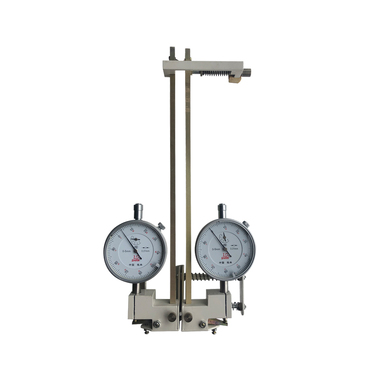computer control tensile strength tester
Computer-Controlled Tensile Strength Tester Enhancing Material Testing Efficiency
In the realm of material science and engineering, understanding the tensile strength of materials is paramount. This property not only determines how much load a material can withstand without failure but also provides insights into its overall performance in various applications. To accurately assess tensile strength, engineers and researchers have turned to technologically advanced solutions like the computer-controlled tensile strength tester.
A computer-controlled tensile strength tester is a sophisticated piece of equipment designed to precisely measure the tensile strength of materials under various conditions. By employing computer automation, these testers can provide accurate, repeatable, and comprehensive data, which is essential for both quality control and research and development purposes.
The Mechanism of Computer-Controlled Testing
The operation of a computer-controlled tensile strength tester involves a systematic process. It begins with the preparation of the sample material, which could range from metals and plastics to composites and textiles. The material is then securely mounted in the testing machine's clamps, ensuring that it is stable and positioned accurately.
Once the sample is ready, the tester utilizes a computer program to establish specific testing parameters, such as the rate of extension and the maximum load to be applied. This programmability is a significant advantage over manual testing methods, as it allows for uniformity in tests and reduces the possibility of human error. Moreover, various standards and specifications can be easily integrated into the testing protocols, ensuring compliance with industry standards.
Data Collection and Analysis
computer control tensile strength tester

As the tensile strength tester begins applying force to the material, the computer system continuously monitors and records data in real-time. This data includes metrics such as elongation, peak load, and the point of fracture. The computer's analytical capabilities allow it to generate detailed reports and graphical representations of the stress-strain curves, which provide a clear visualization of the material's behavior under tensile stress.
Such comprehensive data collection is invaluable in identifying not only the tensile strength but also other critical properties like yield strength and ductility. Engineers can leverage this data to make informed decisions about material selection and design, leading to more efficient and effective engineering solutions.
Applications Across Industries
The applications of computer-controlled tensile strength testers are vast and span numerous industries, including aerospace, automotive, construction, and textiles. In aerospace, for example, the ability to assess the tensile strength of composite materials is crucial for ensuring the safety and performance of aircraft components. Similarly, in the automotive industry, the structural integrity of materials used in vehicle manufacturing relies heavily on rigorous tensile testing.
Additionally, quality control in manufacturing processes heavily utilizes these testers to ensure that materials meet specified standards before they are deployed in production lines. This testing is vital for preventing material failure, which can result in significant safety hazards and financial losses.
Conclusion
As technology continues to advance, computer-controlled tensile strength testers stand at the forefront of material testing innovation. Their ability to deliver precise, reliable, and easily analyzable data enhances the efficiency of testing procedures while ensuring that materials meet the rigorous demands of modern engineering. By investing in these advanced testing solutions, industries can achieve higher levels of quality, performance, and safety in their products, ultimately pushing the boundaries of what is possible in material design and application.
-
Why the Conductor Resistance Constant Temperature Measurement Machine Redefines Precision
NewsJun.20,2025
-
Reliable Testing Starts Here: Why the High Insulation Resistance Measuring Instrument Is a Must-Have
NewsJun.20,2025
-
Flexible Cable Flexing Test Equipment: The Precision Standard for Cable Durability and Performance Testing
NewsJun.20,2025
-
Digital Measurement Projector: Precision Visualization for Modern Manufacturing
NewsJun.20,2025
-
Computer Control Electronic Tensile Tester: Precision and Power for the Modern Metal Industry
NewsJun.20,2025
-
Cable Spark Tester: Your Ultimate Insulation Assurance for Wire and Cable Testing
NewsJun.20,2025
 Copyright © 2025 Hebei Fangyuan Instrument & Equipment Co.,Ltd. All Rights Reserved. Sitemap | Privacy Policy
Copyright © 2025 Hebei Fangyuan Instrument & Equipment Co.,Ltd. All Rights Reserved. Sitemap | Privacy Policy
